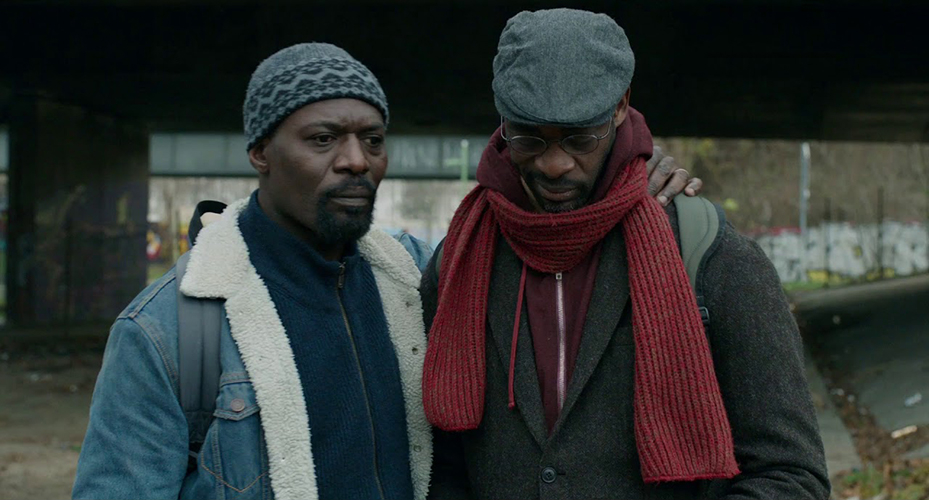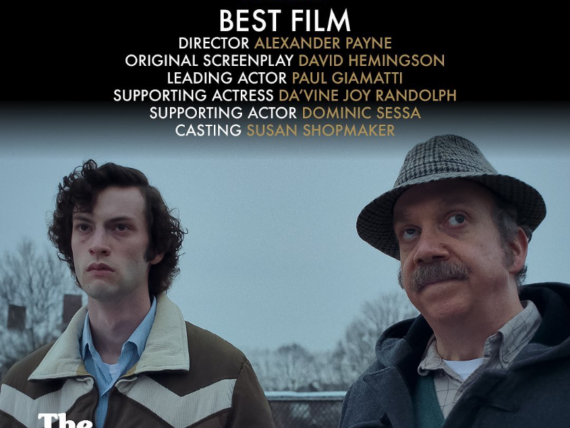Beau Waycott reviews A Season in France, showing in our cinema until Wednesday 24 July.
Held in gentle elegance throughout, A Season in France rages beneath its polished exterior. Mahamat Saleh Haroun, former jury member of the Cannes Film Festival, has crafted a searing political drama that avoids an ‘Us Versus Them’ plot, leaving enemies offscreen to probe questions of migration, patriotism and masculinity through intimate and unflinching depictions of beautiful family milestones, interspersed with deafeningly devastating jolts of pure destruction.
Once a French teacher in the Central African Republic’s Bangui, Abbas Mahadjir (Ériq Ebouaney) is now living in France with his two small children, Asma and Yacine. Haunted constantly by his wife, who was killed as the family fled their country during civil war, he now works at the markets where he meets and eventually enters into a relationship with Carole Blaszak (Sandrine Bonnaire), a Polish-born florist. As Abbas begins to create a sense of belonging for his family – they enter school; they find a comfortable apartment from a friend; and Abbas’ brother Étienne (Bibi Tanga) finds regular work – they soon find their ideal of France crumbling: the Office Français de Protection des Réfugiés et Apatrides rejects his application for refugee status, and thus the complete disintegration of the entire cast is catalysed.
The film’s pièce de résistance is its handling of subtle cultural differences. It is easy to be reminded of Toni Morrison watching scenes in which Abbas’ attempts to talk to the haunting ghost of his wife, as Haroun has gone to great lengths to normalise the conversations Abbas believes his dead wife can hear. A scene in which Carole interrupts Abbas speaking to an empty room on his knees beautifully captures the sense of loss we must imagine Abbas feels, as well as Carole’s feelings of failure.
Haroun most expertly captures the influence of pride on the two brother’s migration. Both have left prestigious and well-paid teaching posts to create their new life, only to be subject to the unskilled and temporary labour jobs France would prefer not to think about. The irony of scenes in which Étienne reads everything from Shakespeare to Descartes in a leaking and unheated shed on an abandoned riverside operate on more than a functional level; the sense of intellectual loss migration has necessitated is wordlessly conveyed. Ebouaney plays the role of troubled father agonisingly well, with that effortlessly male suffusion of quiet anger and occasional bursts of rage into all of Abbas’ actions, not least when confronted with one of the film’s major themes, importance, be it in family, work or, to a lesser extent, the bedroom.
Directorial purpose, however, is kept concealed until the final scene. A true coup, Bonnaire’s lone performance in a windswept wasteland in northern France gives you an insight into the lives of refugees in Europe hard to find elsewhere in the media. The credits role just as you begin to understand the true horror of the plot, and viewers will suddenly understand Abbas’ picturing of his wife: for days after watching, questions of what happens to the characters – and those whom these characters are based on – will haunt you.
Beau Waycott









Comments
Comments are closed.